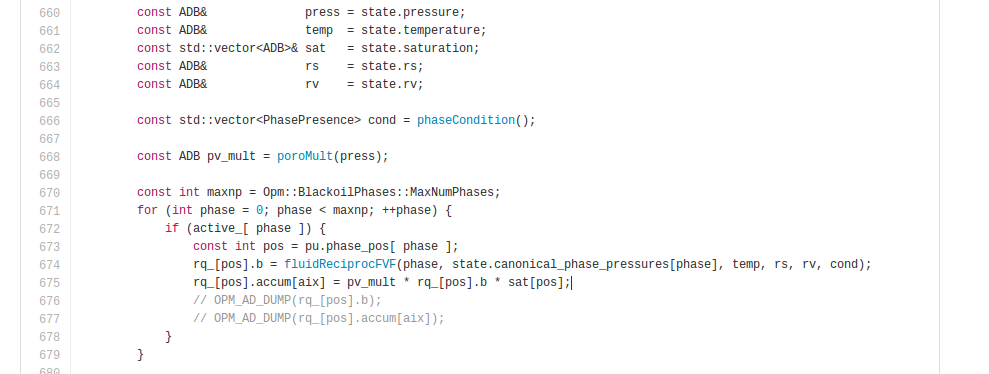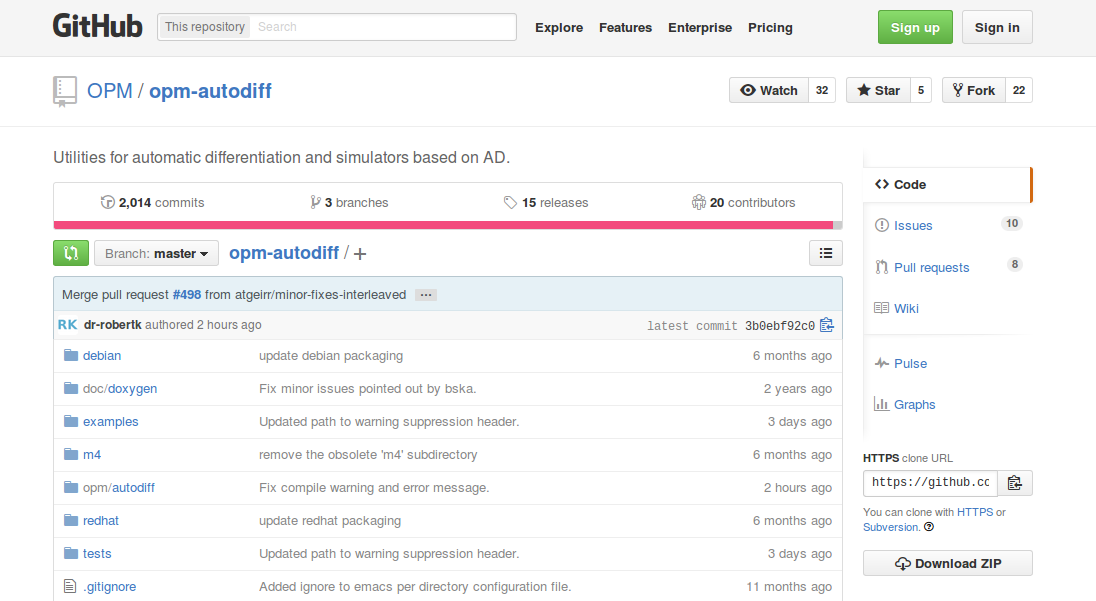In addition to the specific software tools, the OPM initiative provides a general and modularized open-source software environment for sustainable development of efficient and well-maintained software.
In addition to providing applications such as Flow, the software modules can be used as a toolbox for experimentation and prototyping. Among the features offered are:
- Support for the industry-standard Eclipse deck input format.
- Processing of general corner-point grids with faults and erosion.
- Solvers for two-phase incompressible problems.
- Operator-splitting methods.
- Flow diagnostics utilities such as a time-of-flight solver.
- Support for compositional methods.
For more information on the OPM modules and what they contain, visit the modules page.

Software development in OPM is based on the following principles:
- All OPM modules are free software available under the terms of the GNU General Public License (GPL) version 3.
- OPM strives to use an open development model. This means that anyone can contribute on equal grounds:
- All source-code is hosted on public repositories on github.
- All developer infrastructure (e.g., mailing lists, bug tracking system, wiki) is open to the general public.
- OPM aims to be useful for applications in many industrially relevant fields including CO2 storage, environmental engineering, and reservoir engineering.
- OPM uses high-quality, third-party frameworks and libraries; for example many OPM modules use the Dune C++ framework or the Eigen library.
